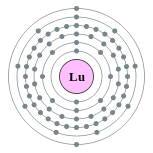Beryllium
Janet Kuypers
from the “ Periodic Table of Poetry” series
I’ve wanted you with me.
I’ve paid for fragments of you,
spending what I could at the
Gem and Jewelry show for years,
because all I could afford of you
was aquamarine glimmers of you,
blue like the endless sky above.
In that aquamarine sky above
I’d see you in high-speed aircraft,
I’d see the Universe with your space vehicles,
even travel the information superhighway
in your communication satellites, before
you’d try to bombard me with your missiles.
I’ve needed you with me,
because I hear you make things stronger,
and I’ve needed that for so long,
for so many years. I needed that.
And when I found someone
that dated me for years, that
I thought I had a future with,
I took him with me to get your
green brilliance, wrap you around my neck,
wrap you around my finger. Frame you
in diamonds and gold, I’d do
whatever I could to get you.
Your emerald brilliance,
your aquamarine brilliance,
is what draws me to you, still.
I know it’s irrational, my desire for you,
I know that I don’t need you,
but you have been the window for me
to all of the things inside of me, and even
to everything beyond this world.
But with your colorful brilliance,
you give the world strength, you help me
see everything truly inside of me, help me
communicate with the world, even get me
beyond the confines of this world
When I lay it all out for you this way,
you have to understand
my attraction to you.
You have to understand
my desire for you.
I know, doctors say
I don’t need you,
but in a way, I do.
So I just wanted you to
understand
my seemingly
irrational need.







